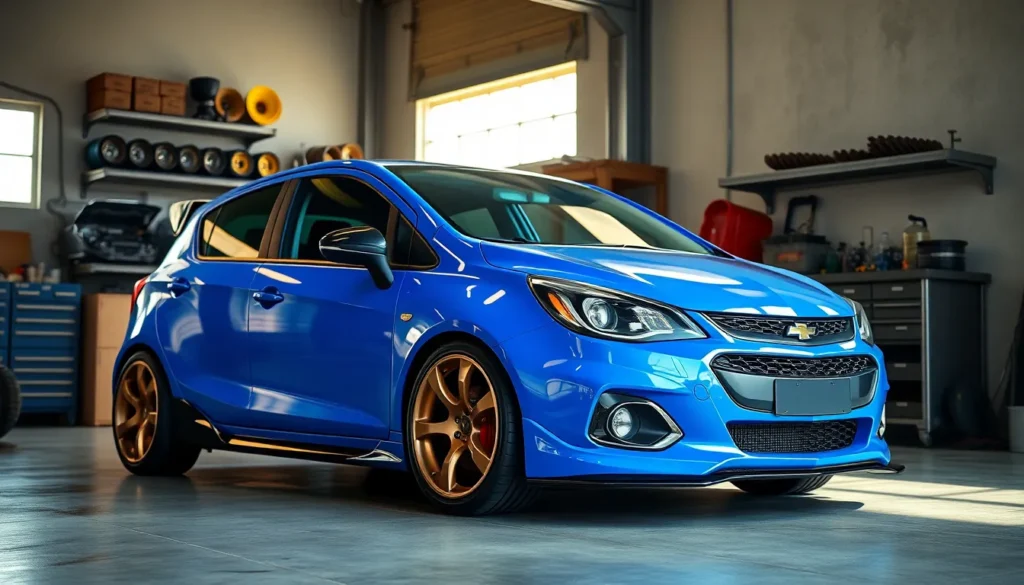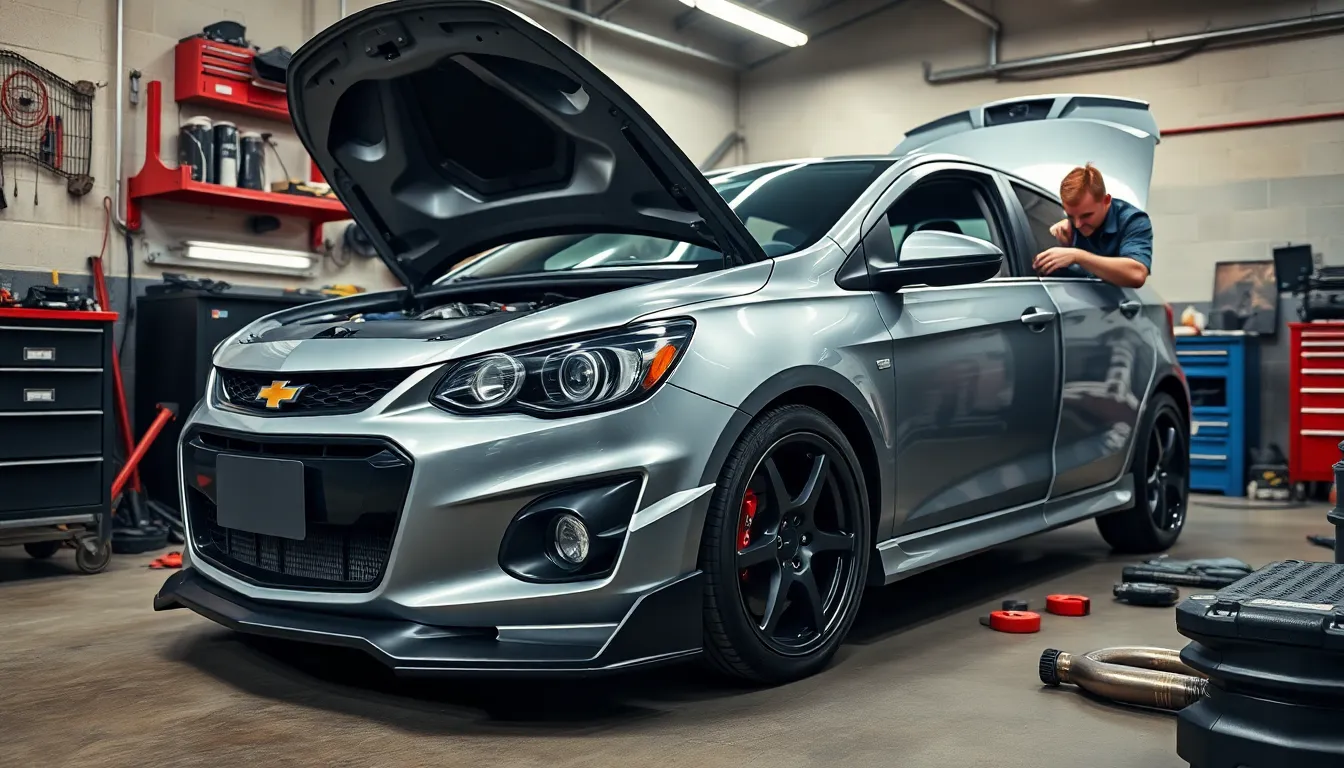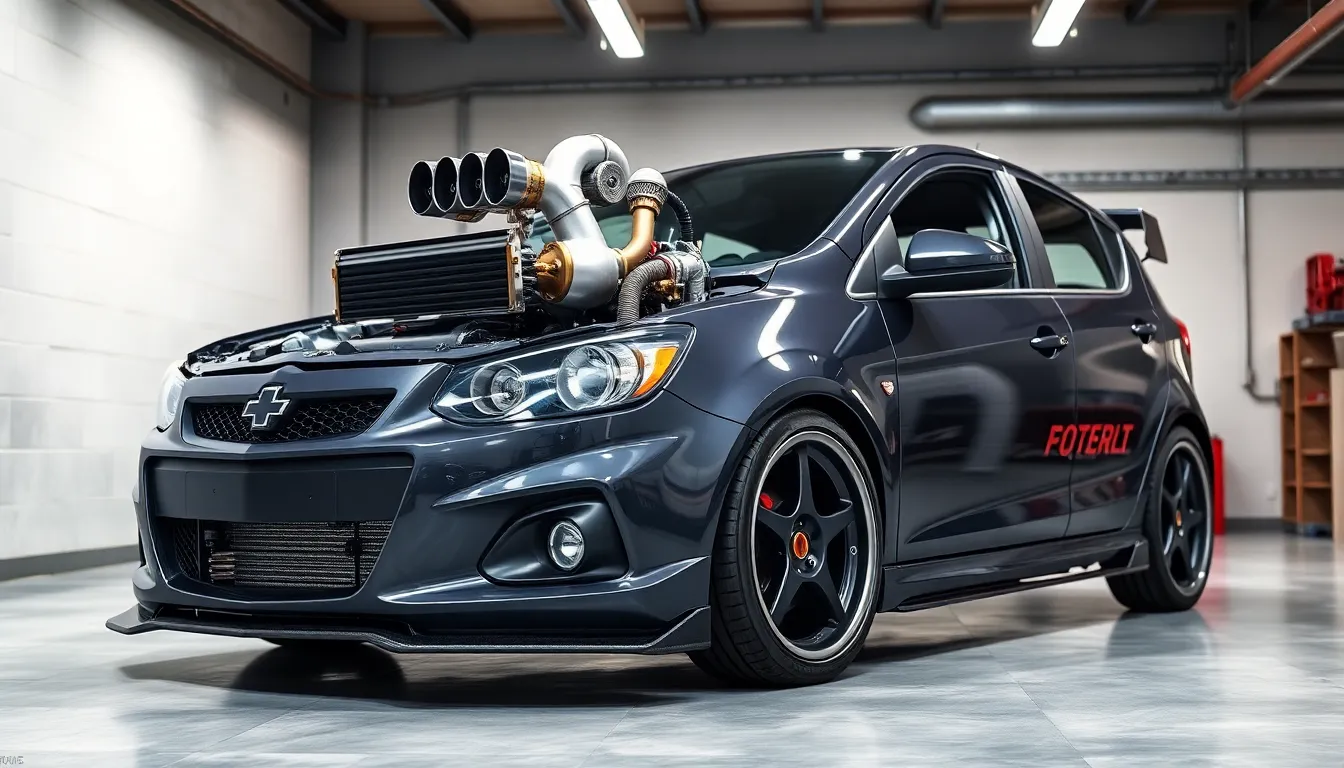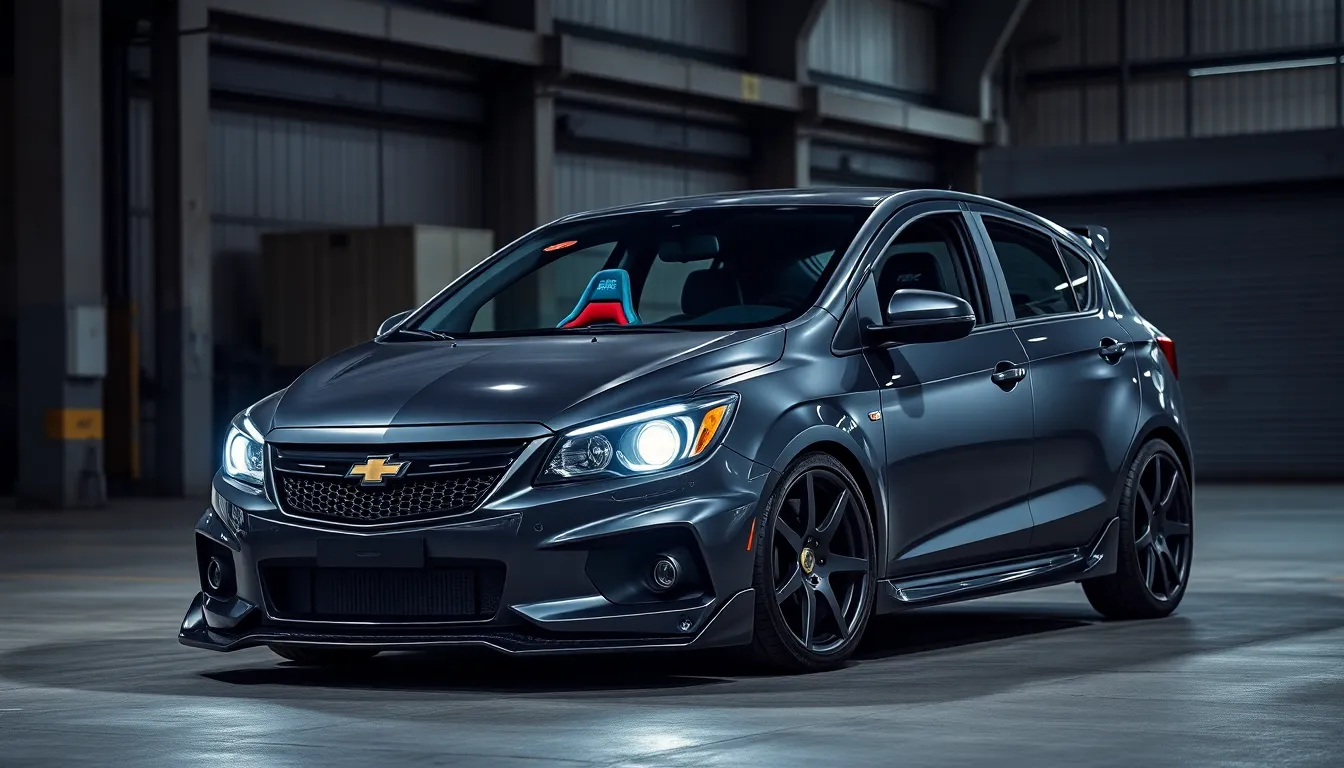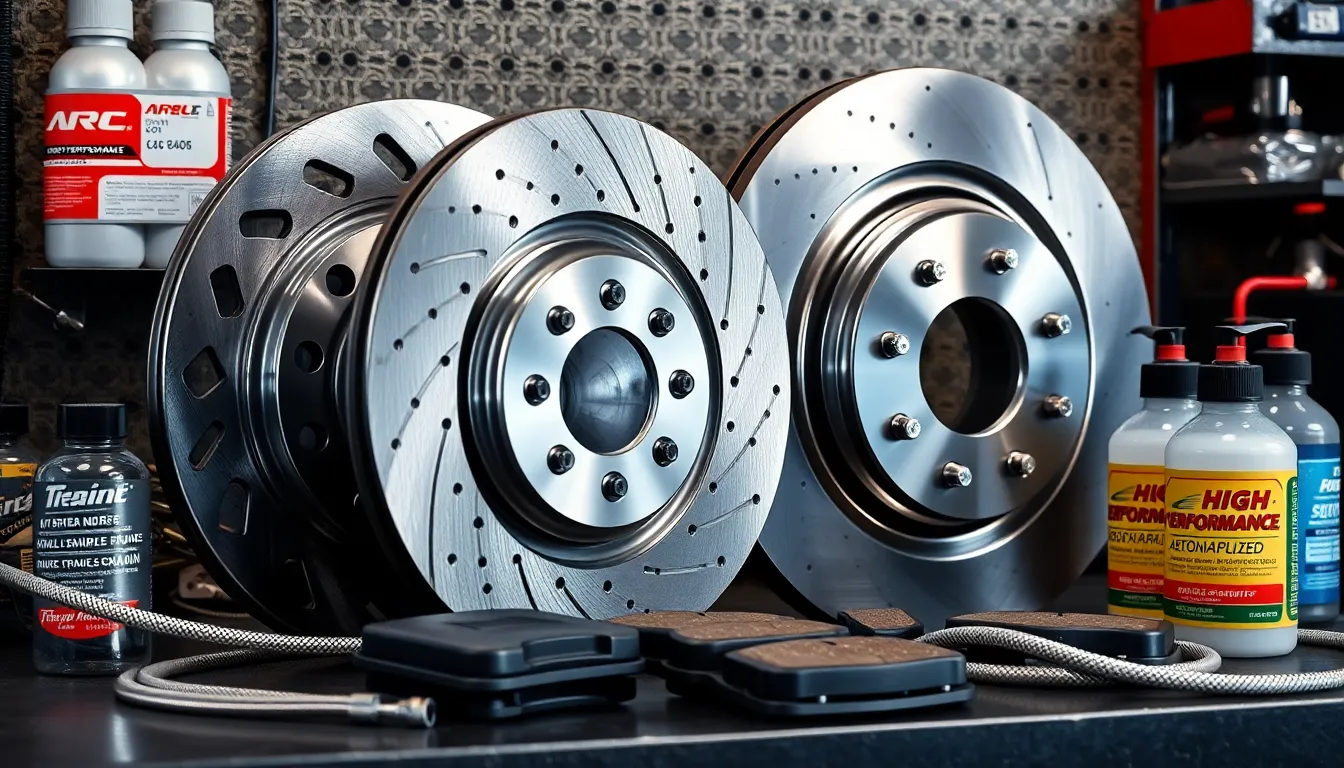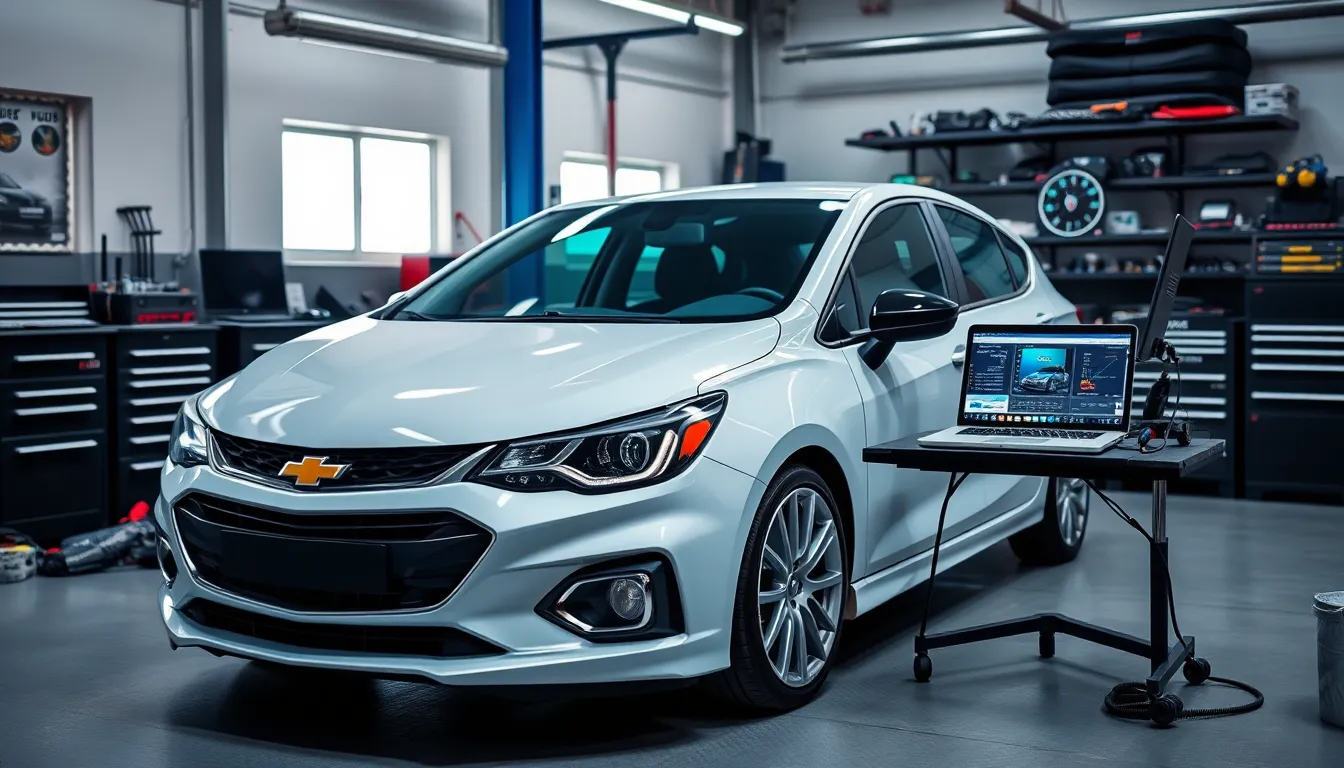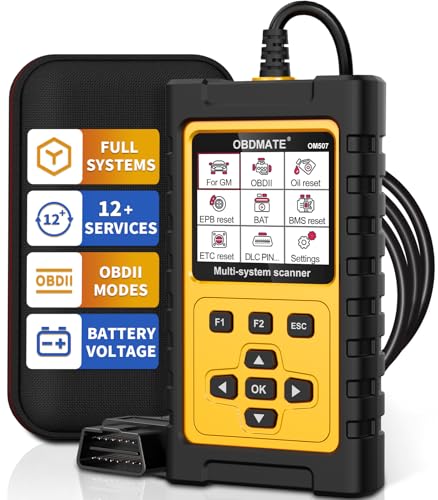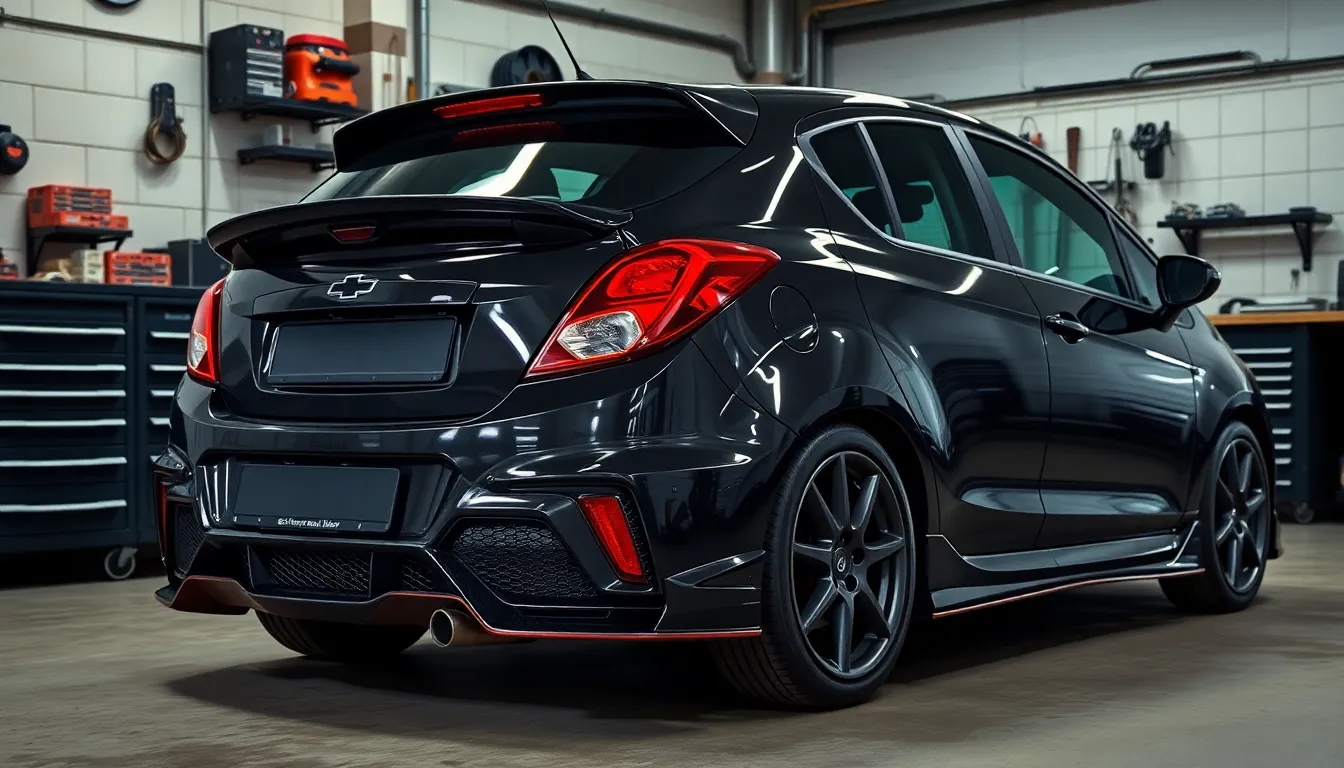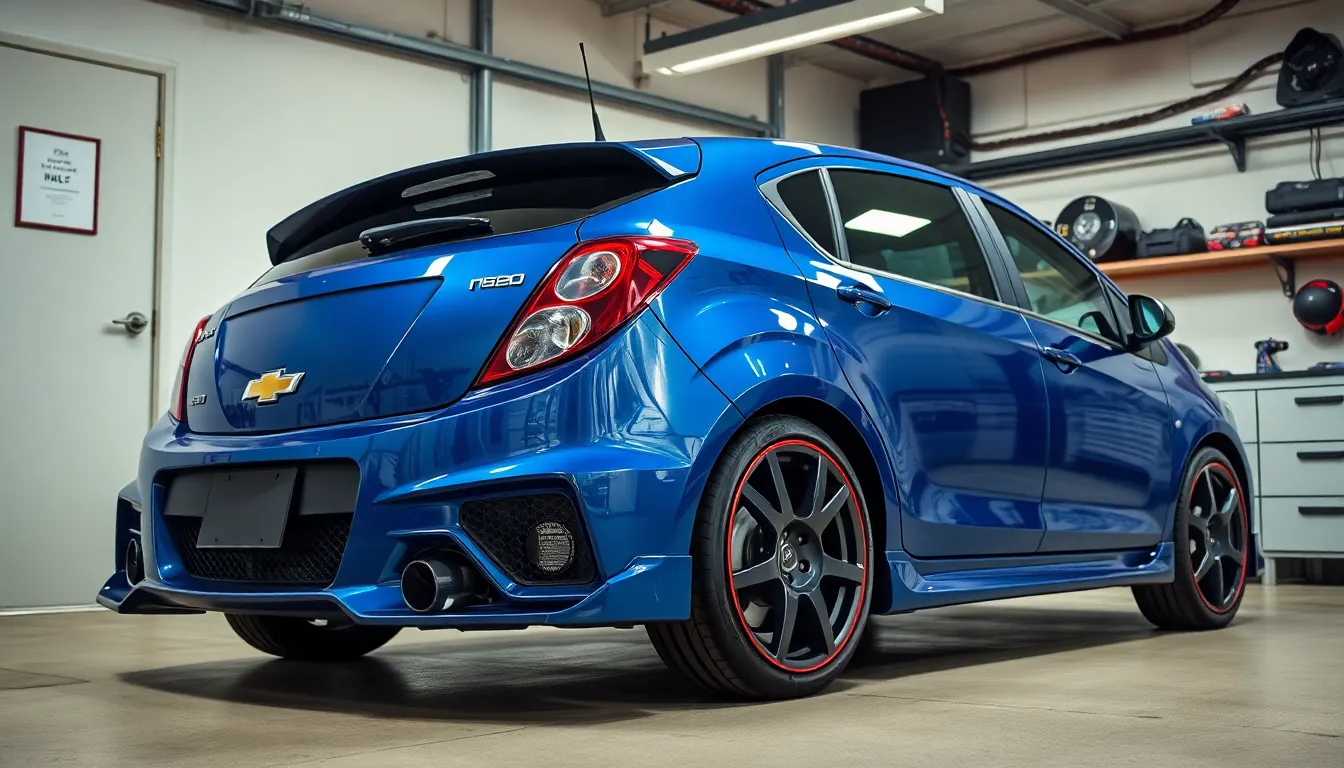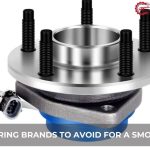The Chevrolet Corsa represents one of the most underrated gems in the compact car tuning scene. We’ve watched countless enthusiasts transform these nimble hatchbacks into street-dominating machines that punch well above their weight class. Whether you’re looking to squeeze extra horsepower from the engine bay or enhance the car’s handling dynamics, the Corsa offers endless possibilities for modification.
What makes the Corsa particularly appealing to tuners isn’t just its affordable price point—it’s the incredible potential hiding beneath that unassuming exterior. We’ve seen these cars evolve from daily drivers into track-ready beasts with the right combination of performance upgrades. The lightweight chassis and responsive nature make it an ideal canvas for both beginners taking their first steps into automotive modification and seasoned professionals pushing boundaries.
From simple bolt-on modifications to comprehensive engine rebuilds, we’ll guide you through the essential tuning strategies that’ll unlock your Corsa’s true performance potential.
Understanding the Chevrolet Corsa Platform for Tuning Success
Before diving into modifications, we need to understand what makes the Corsa platform such a solid foundation for performance upgrades.
Engine Specifications and Potential
Four-cylinder powerplants dominate the Corsa lineup across different generations and markets. We commonly encounter 1.0L, 1.2L, 1.4L, and 1.6L displacement options that respond exceptionally well to tuning modifications.
Entry-level 1.0L engines typically produce between 58-75 horsepower in stock form but can achieve 30-50% power gains through basic modifications. These smaller displacement units excel at lightweight builds and offer excellent fuel economy even after tuning.
Mid-range 1.4L variants serve as the sweet spot for most tuners, delivering approximately 90-100 horsepower stock while supporting turbocharger installations without extensive internal modifications. Naturally aspirated versions of these engines respond well to intake, exhaust, and ECU tuning combinations.
High-performance 1.6L engines found in GSi and VXR models come factory-turbocharged and can handle important power increases. We’ve seen these units reliably produce 200+ horsepower with proper supporting modifications and tuning.
Transmission Options and Limitations
Manual transmissions remain the preferred choice for serious Corsa tuning projects due to their durability and performance characteristics. Five-speed and six-speed manual gearboxes handle moderate power increases without requiring immediate upgrades.
Gear ratios in standard transmissions work well for street driving but may need adjustment for track-focused builds. Close-ratio gear sets improve acceleration and keep the engine in its optimal power band during spirited driving.
Automatic transmissions present more challenges for performance tuning due to their complexity and limited aftermarket support. We recommend manual swaps for serious performance builds, though modern automatics can handle mild power increases with proper tuning.
Clutch systems become the first weak point when increasing power output beyond 150 horsepower. Upgraded clutch kits, pressure plates, and flywheels are essential for reliable power transfer in modified applications.
Weight Distribution and Chassis Design
Front-wheel-drive layout provides excellent weight distribution for a compact car platform, with approximately 60% of the weight over the front wheels. This configuration benefits handling through proper suspension tuning and weight reduction strategies.
MacPherson strut front suspension systems offer simple geometry that responds well to aftermarket upgrades including coilovers, strut bars, and performance bushings. We can achieve important handling improvements without complex modifications.
Torsion beam rear axles found on most Corsa variants provide adequate performance for street and light track use. Though less sophisticated than independent rear suspensions, these setups offer durability and cost-effective upgrade paths.
Chassis rigidity varies between generations, with newer models featuring improved structural integrity. We recommend chassis bracing and roll cage installations for high-performance builds to maximize suspension effectiveness and safety.
Curb weight ranges from 2,200 to 2,600 pounds depending on the exact model and generation, making the Corsa naturally responsive to power modifications. Weight reduction through interior stripping and lightweight components amplifies performance gains significantly.
Essential Engine Modifications for Chevrolet Corsa Tuning
Engine modifications form the foundation of any successful Chevrolet Corsa tuning project. We’ll explore the most impactful upgrades that deliver measurable power gains across all Corsa engine variants.
Cold Air Intake Systems and Performance Filters
Cold air intake systems represent the most cost-effective first modification for Corsa engines. We recommend installing a complete cold air intake kit that relocates the air filter away from the engine bay’s heat. Performance air filters like K&N or AEM increase airflow by 15-20% compared to stock paper filters.
Intake modifications work particularly well on the 1.0L and 1.4L Corsa engines. We’ve observed power gains of 8-12 horsepower on naturally aspirated engines with proper intake upgrades. Short ram intakes offer easier installation but deliver smaller gains than full cold air systems.
Performance filters require regular cleaning but last significantly longer than disposable alternatives. We suggest pairing intake modifications with throttle body upgrades for maximum effectiveness. Filter placement behind the headlight or in the lower bumper area provides the coolest air temperatures.
Exhaust System Upgrades and Headers
Exhaust system upgrades unlock substantial power gains across all Corsa engine configurations. We start with header installations that replace restrictive factory manifolds with free-flowing designs. Ceramic coated headers reduce under-hood temperatures while improving exhaust flow by 25-30%.
Cat-back exhaust systems provide the next logical upgrade after header installation. We recommend 2.5-inch diameter piping for 1.4L and 1.6L engines to maintain proper exhaust velocity. High-flow catalytic converters maintain emissions compliance while reducing backpressure significantly.
Performance mufflers like Magnaflow or Borla deliver aggressive sound without excessive drone. We’ve measured 12-18 horsepower gains from complete exhaust system overhauls on stock Corsa engines. Stainless steel construction ensures longevity in various climate conditions.
Resonator removal creates additional power gains but increases cabin noise levels. We suggest test fitting exhaust components before welding to ensure proper clearance around suspension components.
Engine Control Unit (ECU) Remapping
ECU remapping delivers the most dramatic power increases for modified Corsa engines. We use professional tuning software to optimize fuel maps, ignition timing, and boost levels on turbocharged variants. Stage 1 tunes typically add 20-35 horsepower to naturally aspirated engines.
Professional dyno tuning ensures optimal air-fuel ratios across the entire RPM range. We recommend companies like APR or GIAC that offer Corsa-exact calibrations. Custom tuning accounts for individual modifications like intake and exhaust upgrades.
Piggyback ECU systems offer removable tuning answers for warranty concerns. We’ve achieved excellent results with systems that intercept and modify sensor signals. Flash tuning provides permanent calibration changes that maximize performance potential.
Data logging capabilities allow continuous monitoring of engine parameters during tuning. We track knock sensor activity, air-fuel ratios, and exhaust gas temperatures to prevent engine damage. Conservative tuning approaches ensure long-term reliability while delivering substantial power gains.
Suspension and Handling Upgrades for Enhanced Performance
Transforming your Corsa’s handling characteristics requires strategic suspension modifications that complement the engine upgrades we’ve already discussed.
Lowering Springs and Coilover Systems
Progressive lowering springs offer the most cost-effective entry point into suspension tuning for Corsa enthusiasts. We recommend dropping your vehicle 1.5-2.0 inches using quality spring sets from brands like Eibach Pro-Kit or H&R Sport Springs, which typically cost $200-350. These modifications reduce body roll significantly while maintaining daily drivability on most road surfaces.
Coilover systems provide complete adjustability for serious tuners who demand precise handling control. Popular options like BC Racing BR Series or KW Variant 1 coilovers range from $800-1,200 and allow height adjustments from stock to 3 inches lower. Damping adjustment capabilities let you fine-tune compression and rebound settings for track days or street driving conditions.
Installation considerations include maintaining proper suspension geometry to prevent premature tire wear. We suggest keeping drops within manufacturer-recommended limits and pairing lowering modifications with appropriate alignment settings. Camber adjustments become crucial when lowering exceeds 2 inches to maintain optimal contact patches.
Sway Bars and Strut Braces
Front and rear sway bar upgrades dramatically improve cornering stability by reducing body roll during aggressive driving maneuvers. Aftermarket bars from Whiteline or Hotchkis typically measure 22-24mm front and 18-20mm rear compared to stock 19mm and 16mm respectively. These upgrades cost $150-300 per set and can reduce body roll by up to 40%.
Strut tower braces connect the suspension mounting points to increase chassis rigidity and improve steering response. Quality aluminum braces from brands like Cusco or Ultra Racing cost $80-150 and provide noticeable improvements in steering precision during cornering. Front strut braces offer the most important benefits, while rear braces help maintain consistent handling balance.
Lower tie bars complement upper braces by connecting suspension components beneath the engine bay. These modifications prevent unwanted suspension movement under load and cost approximately $60-120. Installing both upper and lower braces creates a comprehensive chassis stiffening package that transforms handling characteristics.
Performance Tires and Wheel Combinations
Tire compound selection proves critical for maximizing suspension upgrade benefits through improved grip levels. We recommend performance tires like Michelin Pilot Sport 4S or Continental ExtremeContact Sport in 195/50R15 or 205/45R16 sizes for optimal Corsa fitment. These tires provide 15-20% better grip compared to standard all-season options.
Lightweight wheel options reduce unsprung weight while accommodating wider tire profiles for increased contact patches. Popular choices include 15×7 or 16×7 wheels from manufacturers like Konig, Enkei, or Sparco, weighing 12-16 pounds compared to stock 20-pound wheels. Weight reduction of 4-8 pounds per corner improves acceleration, braking, and handling response.
Plus sizing strategies involve moving to larger diameter wheels with lower profile tires to maintain overall diameter. Moving from 14-inch to 16-inch wheels with corresponding tire changes reduces sidewall flex and improves steering precision. We suggest staying within 2 inches of stock diameter to maintain speedometer accuracy and avoid clearance issues.
Turbocharging and Supercharging Options for Maximum Power
Forced induction transforms our Chevrolet Corsa into a true performance machine by dramatically increasing power output. We’ll explore the most effective turbocharging and supercharging answers that deliver maximum horsepower gains while maintaining reliability.
Turbo Kit Selection and Installation
Garrett T25 turbo kits represent our top choice for Corsa 1.4L engines, delivering power increases of 80-120 horsepower over stock configurations. These complete kits include all necessary components like turbocharger assembly, manifold, wastegate, and blow-off valve for seamless installation.
Custom manifold fabrication becomes essential when working with smaller displacement engines like the 1.0L and 1.2L variants. We recommend log-style manifolds for budget builds or tubular designs for maximum flow efficiency, with costs ranging from $400-800 depending on material quality.
Installation complexity varies significantly between different turbo setups, with bolt-on kits requiring 15-20 hours of work while custom installations may need 25-35 hours. Professional installation typically costs $1,500-2,500, though experienced tuners can tackle the project themselves with proper tools and workspace.
Boost pressure management requires careful consideration, with most Corsa engines safely handling 8-12 PSI on stock internals. Higher boost levels of 15-18 PSI become possible with forged pistons, upgraded connecting rods, and reinforced head gaskets to prevent catastrophic failure.
Intercooler and Piping Modifications
Front-mount intercooler systems provide the most effective cooling solution for our turbocharged Corsa builds, with core sizes ranging from 600x300x76mm for mild builds to 700x400x100mm for high-performance applications. These upgrades reduce intake air temperatures by 60-80 degrees Fahrenheit compared to stock setups.
Piping diameter optimization plays a crucial role in maintaining boost pressure and minimizing lag, with 2.5-inch aluminum piping being ideal for most applications. Larger 3-inch piping becomes beneficial only on builds exceeding 250 horsepower, while smaller diameters create unnecessary restrictions.
Silicone coupling quality directly impacts system reliability, with high-temperature rated couplers withstanding boost pressures up to 30 PSI. We recommend investing in reinforced 4-ply silicone hoses rather than cheaper alternatives that often fail under pressure and heat cycling.
Cold side routing requires careful planning to avoid heat sources and maintain smooth airflow paths. Strategic placement of the intercooler piping ensures minimal pressure drop while maximizing cooling efficiency through the engine bay.
Fuel System Upgrades for Forced Induction
High-flow fuel injectors become mandatory for any forced induction setup, with 440cc injectors supporting up to 200 horsepower while 550cc units handle builds up to 250 horsepower. These upgrades ensure proper air-fuel ratios under boost conditions and prevent dangerous lean conditions.
Fuel pump upgrades provide the necessary flow rates to support increased power demands, with Walbro 255LPH pumps being our preferred choice for most Corsa applications. These pumps deliver consistent pressure even at high RPM under boost, preventing fuel starvation issues.
Pressure regulator modifications maintain proper fuel pressure across the entire RPM range, with rising rate regulators increasing pressure proportionally with boost. This ensures adequate fuel delivery during peak power production while maintaining efficient operation at idle and cruise.
Fuel rail improvements distribute pressurized fuel evenly to all cylinders, with larger diameter rails providing better flow characteristics. Upgraded rails also accommodate larger injectors and additional sensors needed for proper tuning and monitoring of our forced induction system.
Interior and Exterior Modifications for Style and Function
Transform your Chevrolet Corsa’s appearance while improving functionality through strategic interior and exterior modifications. These aesthetic upgrades complement performance enhancements to create a cohesive tuning package.
Sport Seats and Safety Equipment
Sport seats provide crucial support during aggressive driving sessions while elevating your Corsa’s interior aesthetics. Recaro Sportster CS seats offer excellent lateral support and bolt directly to factory mounting points, typically costing $800-1,200 per pair. Sparco Sprint series seats deliver similar performance benefits at $600-900 per pair, featuring lightweight construction that reduces overall vehicle weight by 15-20 pounds.
Racing harnesses enhance safety significantly when paired with proper mounting hardware and roll cage installations. Schroth QuickFit harnesses integrate seamlessly with sport seats, providing 4-point restraint systems that distribute crash forces more effectively than factory seatbelts. OMP First Evo harnesses offer 6-point configurations for serious track applications, requiring professional installation to ensure proper mounting angles.
Roll bars and cages protect occupants during high-performance driving while adding structural rigidity to the Corsa’s chassis. Weld-in roll cages from Safety Devices provide maximum protection and weight savings, though they require permanent modifications to the vehicle structure. Bolt-in options from Custom Cages offer removability for street use while maintaining adequate safety standards for track days.
Performance gauges monitor critical engine parameters during tuned applications, preventing costly damage from lean conditions or excessive temperatures. AEM Digital Wideband gauges track air-fuel ratios precisely, displaying readings on easy-to-read LCD screens. Auto Meter Sport Comp series gauges provide oil pressure, water temperature, and boost readings in matching designs that complement factory instrumentation.
Body Kits and Aerodynamic Enhancements
Body kits transform the Corsa’s exterior appearance while improving aerodynamic efficiency at higher speeds. Opel OPC body kits provide factory-quality fitment with aggressive styling cues, including front splitters, side skirts, and rear diffusers that reduce lift at speed. Irmscher body packages offer more subtle enhancements with improved ground effects and better panel gaps than aftermarket alternatives.
Front splitters reduce front-end lift while directing airflow underneath the vehicle more efficiently. APR Performance carbon fiber splitters mount directly to factory bumpers, adding 2-3 inches of ground clearance reduction while maintaining approach angles. Maxton Design splitters provide similar functionality at lower price points, using high-quality ABS plastic construction that resists impact damage.
Rear spoilers and wings generate downforce to improve high-speed stability during track sessions. OEM+ spoilers from Irmscher maintain subtle appearances while adding 15-25 pounds of downforce at 80+ mph. Larger wing assemblies from Voltex or APR can generate 100+ pounds of rear downforce but require careful tuning to balance front and rear aerodynamic loads.
Side skirts and door panels create visual flow between front and rear body modifications while reducing side airflow turbulence. Rieger side skirts complement most front bumper upgrades, providing seamless styling transitions that enhance the Corsa’s aggressive stance. Carbon fiber door panels from Seibon reduce weight by 8-12 pounds per panel while adding distinctive visual elements.
Lighting Upgrades and Visual Modifications
LED headlight conversions improve visibility dramatically while reducing electrical load on the charging system. Philips X-tremeUltinon LED bulbs produce 6000K white light that’s 200% brighter than factory halogen bulbs, drawing only 23 watts compared to 55 watts for standard bulbs. Osram Night Breaker LED units offer similar performance with plug-and-play installation that requires no wiring modifications.
HID xenon systems provide maximum light output for night driving and track sessions. Morimoto Mini H1 projectors retrofit into factory headlight housings, producing 3200 lumens of 4300K light that penetrates rain and fog more effectively than LED alternatives. Proper installation requires headlight housing modifications and ballast mounting in protected locations away from heat sources.
Tail light modifications enhance visibility while creating distinctive rear-end styling. LED tail light assemblies from Depo or TYC provide faster illumination response times that improve safety during emergency braking situations. Sequential turn signals from Diode Dynamics create modern styling cues while maintaining DOT compliance for street use.
Interior ambient lighting creates custom atmosphere while improving nighttime visibility of controls and switches. LED strip installations under dash panels and door sills provide even illumination in multiple colors, controlled through smartphone apps or dashboard switches. Footwell lighting kits improve pedal visibility during night driving while adding subtle styling accents that complement exterior modifications.
Window tinting reduces interior temperatures by 35-50% while protecting upholstery from UV damage and providing privacy for valuable interior modifications. 35% tint on front windows maintains legal compliance in most states while 20% rear tinting provides maximum heat rejection. Ceramic films from 3M or Llumar offer superior heat rejection without interfering with electronic devices or GPS signals.
Brake System Enhancements for Improved Stopping Power
Upgraded braking systems become essential when you’re pushing your Corsa’s performance limits with engine modifications. We’ll explore the most effective brake enhancements that complement your tuned Corsa’s increased power output.
Performance Brake Pads and Rotors
Performance brake pads offer dramatically improved stopping power over stock components for your modified Corsa. Ceramic brake pads provide excellent heat dissipation and reduce brake fade during spirited driving sessions. We recommend EBC RedStuff pads for their superior performance characteristics and compatibility with daily driving needs.
Slotted brake rotors work alongside performance pads to enhance heat dissipation and prevent brake fade under hard use. Cross-drilled rotors provide additional cooling benefits but can be prone to cracking under extreme conditions. Dimpled rotors represent the best compromise between cooling performance and structural integrity for most Corsa applications.
High-carbon brake rotors deliver superior heat resistance compared to standard cast iron rotors. These rotors maintain consistent stopping power even during track day sessions or aggressive mountain driving. We’ve found that Brembo and StopTech rotors offer the best performance gains for modified Corsas.
| Brake Pad Type | Temperature Range | Performance Gain | Price Range |
|---|---|---|---|
| Ceramic Pads | 32°F to 1,200°F | 25-30% improvement | $80-$150 |
| Semi-Metallic | 32°F to 1,000°F | 20-25% improvement | $50-$100 |
| Track Compound | 200°F to 1,400°F | 35-40% improvement | $150-$250 |
Brake Line Upgrades and Fluid Selection
Stainless steel brake lines eliminate the spongy pedal feel common in stock Corsa braking systems. Steel braided lines resist expansion under pressure and provide more direct pedal feedback during hard braking. We recommend Goodridge or Russell brake lines for their proven reliability and precise fitment.
High-performance brake fluid maintains consistent viscosity across temperature ranges better than standard DOT 3 fluid. DOT 4 brake fluid offers higher boiling points and better moisture resistance for modified applications. Motul RBF 600 or Castrol SRF fluids provide the ultimate protection against brake fade during track use.
Regular brake fluid changes become more critical with performance modifications due to increased heat generation. We suggest changing brake fluid every 12 months or after each track day session. Fresh fluid ensures optimal brake system performance and prevents internal corrosion that can compromise braking effectiveness.
Big Brake Kit Installation Options
Big brake kits provide the ultimate stopping power upgrade for heavily modified Corsas producing important horsepower gains. Wilwood and AP Racing offer complete big brake conversions that include larger diameter rotors and multi-piston calipers. These kits typically increase rotor diameter from 256mm to 330mm or larger.
Four-piston brake calipers distribute clamping force more evenly across brake pad surfaces than single-piston stock calipers. Larger brake calipers accommodate wider brake pads for increased friction surface area. We’ve found that proper brake caliper selection depends on your Corsa’s wheel diameter and intended use.
Complete big brake kit installation requires careful attention to brake bias and proportioning valve adjustments. Professional installation ensures proper brake balance and prevents rear brake lockup during hard stops. These comprehensive brake upgrades cost between $1,500 and $3,500 but provide unmatched stopping performance for track-focused Corsas.
Tuning Software and Diagnostic Tools for Optimization
Modern Chevrolet Corsa tuning relies heavily on advanced software platforms and diagnostic equipment to unlock the full potential of your modifications. Professional grade tools enable precise calibration of engine parameters and real time monitoring of performance metrics.
Popular ECU Tuning Software Platforms
TunerPro RT stands out as the most accessible ECU tuning software for Corsa enthusiasts, offering comprehensive bin file editing capabilities at no cost. We’ve found this platform excels at modifying fuel maps, ignition timing, and boost control parameters across various Corsa ECU types. The software supports XDF definition files specifically designed for GM Multec ECUs commonly found in 1.4L and 1.6L Corsa variants.
HPTuners delivers professional level tuning capabilities with VCM Suite software that directly interfaces with Corsa ECU systems through OBD-II connections. This platform allows real time parameter adjustments and includes advanced features like torque management, closed loop fuel control, and transmission calibration for automatic equipped models. HPTuners credits cost approximately $100 per ECU unlock, making it ideal for serious tuning projects.
Kess V2 and KTag represent top tier ECU programming tools that provide direct bench and boot mode access to Corsa ECU systems. These master tools enable complete firmware modifications and are essential for heavily modified engines running forced induction setups. Professional tuning shops typically use these platforms for custom calibrations that exceed standard OBD-II parameter ranges.
WinOLS serves as the industry standard for professional ECU map editing, offering sophisticated visualization tools and checksum correction algorithms. We recommend this software for advanced tuners working on complex Corsa builds that require detailed analysis of ECU memory maps and binary data structures.
OBD-II Diagnostic Equipment
ELM327 based scan tools provide essential diagnostic capabilities for monitoring Corsa engine parameters during tuning sessions. These affordable devices connect wirelessly to smartphones and tablets running apps like Torque Pro or OBD Fusion, allowing real time monitoring of air fuel ratios, boost pressure, and timing advance. Quality ELM327 chips support all OBD-II protocols used in Corsa models from 2000 onward.
Launch X431 series scanners offer comprehensive diagnostic coverage for Chevrolet Corsa systems, including advanced functions like ECU coding and component activation tests. These professional grade tools provide detailed fault code descriptions and guided troubleshooting procedures that prove invaluable during complex tuning projects. The X431 Pro model includes oscilloscope functions for analyzing sensor waveforms and electrical circuits.
Autel MaxiSys diagnostic platforms deliver dealership level functionality with extensive Chevrolet coverage and regular software updates. We’ve tested these units extensively on modified Corsas and found their ability to perform ECU adaptations and component calibrations particularly useful after installing performance modifications. The graphing capabilities allow detailed analysis of sensor data trends during test drives.
Ross Tech VCDS interfaces provide direct access to advanced Corsa ECU functions through proprietary diagnostic protocols. While primarily designed for VAG group vehicles, certain versions support GM Multec ECU systems through generic OBD-II functions. These tools excel at logging multiple parameters simultaneously for detailed performance analysis.
Dyno Tuning and Performance Testing
Dynojet dynamometers represent the gold standard for Corsa performance testing, offering precise measurement of wheel horsepower and torque across the entire RPM range. We recommend using DynoJet 224xLC or 248C models for accurate baseline testing and tune validation. These systems provide detailed air fuel ratio logging through integrated wide band oxygen sensors and can simulate various load conditions.
Load bearing dynos enable comprehensive tuning under realistic driving conditions, allowing tuners to optimize Corsa calibrations across different throttle positions and engine loads. Facilities equipped with Mustang or SuperFlow dynos can perform steady state tuning that’s impossible to achieve during street testing. This controlled environment proves essential for calibrating forced induction systems and validating fuel system upgrades.
Street tuning equipment includes portable wide band air fuel ratio meters like AEM UEGO or Innovate LC 2 units that provide real time feedback during test drives. These devices connect directly to exhaust systems and display critical mixture data through digital displays or data logging interfaces. We’ve found street tuning particularly effective for optimizing part throttle areas and cruise fuel maps.
Data acquisition systems such as AiM MXL2 or RacePak units capture comprehensive vehicle data during performance testing sessions. These sophisticated loggers monitor dozens of parameters simultaneously, including GPS speed, acceleration forces, and engine data through CAN bus connections. The resulting data files enable detailed analysis of tuning changes and help identify areas requiring further optimization.
Common Chevrolet Corsa Tuning Mistakes to Avoid
Making costly errors during your Chevrolet Corsa tuning journey can set back your progress by months or even thousands of dollars. We’ve identified the most frequent mistakes that enthusiasts encounter when modifying their Corsas.
Overlooking Supporting Modifications
Upgrading engine power without addressing supporting systems creates a dangerous imbalance that leads to catastrophic failures. We see tuners regularly install turbo kits or aggressive ECU tunes while keeping stock internals and fuel systems, resulting in blown engines and expensive rebuilds.
Fuel system inadequacy becomes apparent when your Corsa starts leaning out under boost or high RPM conditions. Your stock fuel pump typically maxes out around 200 horsepower, yet many tuners push their 1.4L engines beyond this threshold without upgrading to high flow pumps or larger injectors. This oversight causes fuel starvation and potential engine damage during peak performance moments.
Cooling system neglect compounds problems when you increase power output significantly. We recommend upgrading radiators, thermostats, and cooling fans before adding forced induction systems, as your stock cooling components struggle to manage the additional heat generated by modified engines. Many tuners discover this lesson too late when their engines overheat during track sessions or spirited driving.
Transmission components require attention when you exceed 150 horsepower in your Corsa build. Stock clutches slip under increased torque loads, while CV joints and axles break when subjected to aggressive launches or high power applications. We suggest upgrading these components simultaneously with engine modifications to prevent drivetrain failures.
Ignoring Reliability and Daily Drivability
Extreme modifications often sacrifice the practical aspects that make your Corsa enjoyable for everyday use. We observe tuners installing racing camshafts, aggressive tunes, and stiff suspension setups that transform their cars into track monsters but miserable daily drivers.
Camshaft selection dramatically affects idle quality and low end torque characteristics in your Corsa engine. Duration and lift specifications that work well for high RPM performance create rough idles, poor fuel economy, and reduced driveability in stop and go traffic. We recommend staying within moderate camshaft specifications unless you’re building a dedicated track car.
Suspension tuning requires careful balance between performance and comfort for street driven Corsas. Coilovers set too stiff create harsh rides that become unbearable during daily commutes, while extremely low ride heights cause scraping and damage on normal roads. Your optimal setup should provide improved handling without compromising basic usability.
Exhaust system choices significantly impact your neighbors’ patience and local noise regulations. Straight pipe setups or overly aggressive exhaust notes may sound impressive at car meets but create problems with law enforcement and residential areas. We suggest choosing exhaust systems that balance performance gains with reasonable sound levels for daily driving scenarios.
Budget Planning and Prioritization Errors
Spending money on cosmetic modifications before addressing performance fundamentals wastes resources and delays meaningful improvements. We frequently encounter Corsa owners who invest heavily in body kits, wheels, and interior upgrades while running stock engines and suspension components.
Wheel and tire combinations deserve priority over aesthetic modifications when building a performance focused Corsa. Lightweight wheels paired with performance tires provide immediate handling improvements and reduce unsprung weight, delivering tangible benefits that you’ll feel during every drive. Visual modifications like body kits and paint jobs should come after establishing your performance foundation.
Sequential upgrade planning prevents compatibility issues and reduces overall costs throughout your build process. Installing a basic cold air intake and exhaust system first allows you to enjoy immediate improvements while saving for more expensive modifications like turbo kits or engine internals. This approach also helps you understand your car’s characteristics before making irreversible changes.
Professional installation costs should factor into your modification budget from the beginning of your project. Complex upgrades like forced induction systems, engine rebuilds, or suspension setups often require specialized knowledge and tools that exceed typical home garage capabilities. We recommend allocating 20 to 30 percent of your modification budget for professional installation and tuning services to ensure proper implementation and optimal results.
Legal Considerations and Emissions Compliance
Understanding legal requirements ensures your Chevrolet Corsa tuning project remains street legal and compliant with regulations.
State and Federal Regulations
Federal emissions standards govern all modified vehicles through EPA regulations that apply nationwide. We must ensure any engine modifications comply with Clean Air Act requirements, which prohibit tampering with emissions control systems. The EPA considers removing or disabling catalytic converters, oxygen sensors, or EGR systems as illegal modifications that can result in fines up to $2,500 per violation.
State regulations vary significantly across different jurisdictions about modified vehicle compliance. California maintains the strictest standards through CARB (California Air Resources Board) certification requirements for aftermarket parts. States like Texas and Florida offer more lenient modification guidelines, while northeastern states typically follow California’s emission standards. We recommend checking your state’s exact motor vehicle department guidelines before beginning any Corsa tuning modifications.
CARB certification becomes essential when selecting aftermarket parts for emissions-compliant builds. Manufacturers like K&N, Borla, and MagnaFlow offer CARB-certified intake and exhaust systems that maintain legal compliance. ECU tuning must preserve original emission control functions to avoid violations during inspections. We suggest using only EPA-approved tuning software that maintains catalyst efficiency and doesn’t exceed original emission levels.
Inspection Requirements and Documentation
Annual safety and emission inspections require proper documentation for all modifications installed on your Chevrolet Corsa. We need to maintain receipts and certification documents for every aftermarket component to prove legal compliance during inspections. Installation invoices from certified technicians demonstrate professional work and proper procedures were followed.
CARB Executive Orders (EOs) serve as legal proof that aftermarket parts meet emission standards. These documents must be presented during inspections for intake systems, exhaust modifications, and engine management changes. We recommend keeping digital copies of all EO numbers and certificates in your vehicle’s documentation folder. Visual inspections focus on catalytic converter presence, emission control systems, and proper component installations.
Pre-inspection preparation involves returning your Corsa to stock configuration if using non-certified modifications for track use. Removable modifications like cold air intakes and exhaust systems allow switching between street and track setups. We suggest scheduling inspections after completing break-in periods for new modifications to ensure proper operation. Professional inspection stations often provide guidance on common compliance issues before official testing begins.
Insurance Implications for Modified Vehicles
Insurance coverage changes significantly when modifications exceed certain value thresholds or performance levels on your Chevrolet Corsa. Standard auto insurance policies typically don’t cover aftermarket modifications unless specifically declared and additional premiums are paid. We must notify insurance providers about performance upgrades that increase vehicle value by more than 10% of original MSRP.
Agreed value policies protect heavily modified Corsas by establishing predetermined compensation amounts for total loss scenarios. These specialized policies require professional appraisals documenting all modifications and their installation costs. Performance modifications like turbocharger installations or engine swaps often trigger coverage exclusions without proper disclosure. We recommend photographing all modifications and maintaining detailed build logs for insurance documentation.
Modified vehicle insurance specialists like Grundy, Hagerty, and American Collectors offer coverage designed for tuned cars. These companies understand performance modifications and provide appropriate coverage limits for aftermarket components. Premium increases typically range from 15-30% above standard rates depending on modification extent and vehicle use. We suggest obtaining quotes from multiple specialty insurers before beginning major Corsa tuning projects to budget insurance cost increases appropriately.
Conclusion
The Chevrolet Corsa presents an exceptional opportunity for automotive enthusiasts seeking an affordable entry point into the tuning industry. We’ve demonstrated that with the right combination of engine modifications suspension upgrades and supporting systems this compact platform can deliver impressive performance gains that rival much more expensive alternatives.
Remember that successful Corsa tuning requires a balanced approach where each modification complements the others. Whether you’re planning basic bolt-on upgrades or considering forced induction systems we encourage you to prioritize supporting modifications and maintain compliance with local regulations.
Your Corsa tuning journey should reflect your exact goals budget and driving requirements. Start with fundamentals like intake and exhaust systems then progress to more advanced modifications as your experience and confidence grow. With proper planning and execution your Corsa can become the high-performance machine you’ve always envisioned.
Frequently Asked Questions
Is the Chevrolet Corsa a good car for tuning beginners?
Yes, the Chevrolet Corsa is an excellent choice for tuning beginners. Its affordable price point, simple engine design, and wide availability of parts make it ideal for learning. The platform offers forgiving modification possibilities, allowing newcomers to start with basic upgrades like cold air intakes and exhaust systems before progressing to more complex modifications.
What engines are available in the Chevrolet Corsa for tuning?
The Corsa lineup features four-cylinder engines including 1.0L, 1.2L, 1.4L, and 1.6L options. The 1.0L engines can achieve significant power gains through modifications. The 1.4L variants are considered ideal for tuning, while the high-performance 1.6L engines can produce over 200 horsepower with proper upgrades and modifications.
How much horsepower can I gain from basic Corsa modifications?
Basic modifications can yield substantial power gains. Cold air intakes and performance filters add 8-12 horsepower, exhaust system upgrades provide 12-18 horsepower, and ECU remapping can add 20-35 horsepower. Combined, these entry-level modifications can increase total output by 40-65 horsepower, significantly improving performance while remaining budget-friendly.
What transmission works best for tuning a Chevrolet Corsa?
Manual transmissions are strongly preferred for Corsa tuning due to their durability and ability to handle increased power output. Automatic transmissions present significant challenges for tuning and may struggle with higher performance modifications. When upgrading power, an enhanced clutch system is essential to handle the additional torque effectively.
Can I add forced induction to my Chevrolet Corsa?
Yes, turbocharging is a popular modification for the Corsa. Garrett T25 turbo kits work well with 1.4L engines, providing 80-120 additional horsepower. However, forced induction requires supporting modifications including upgraded fuel systems, intercoolers, and ECU tuning. Professional installation is recommended due to the complexity of turbo installations and boost pressure management.
What suspension upgrades should I consider for my tuned Corsa?
Progressive lowering springs and coilover systems are recommended for improved handling. Upgraded sway bars and strut braces increase cornering stability and chassis rigidity. Performance tires paired with lightweight wheels maximize grip and handling improvements. These modifications work together to complement engine enhancements and create a well-balanced performance vehicle.
Do I need to upgrade the brakes on my modified Corsa?
Yes, brake upgrades are essential for modified Corsas to match increased performance safely. Performance brake pads like EBC RedStuff and slotted rotors improve stopping power and heat dissipation. Stainless steel brake lines and high-performance brake fluid enhance pedal feel. For maximum performance, big brake kits from Wilwood or AP Racing provide superior stopping power.
Are there legal considerations for tuning my Chevrolet Corsa?
Yes, modifications must comply with federal and state emissions regulations, including the Clean Air Act. CARB certification is required for aftermarket parts in strict states like California. Maintain documentation for all modifications to facilitate inspections. Additionally, declare modifications to your insurance company, as standard policies may not cover aftermarket parts without proper disclosure.
What tuning software is recommended for the Corsa?
Popular ECU tuning platforms include TunerPro RT and HPTuners, which allow precise calibration of engine parameters. Diagnostic tools like ELM327 scan tools and Launch X431 scanners provide essential monitoring capabilities. Dynojet dynamometers offer accurate horsepower and torque measurements for professional tuning sessions and performance verification.
What common mistakes should I avoid when tuning my Corsa?
Avoid upgrading engine power without enhancing supporting systems like fuel delivery and cooling, which can cause engine damage. Don’t compromise daily drivability with extreme modifications. Prioritize performance fundamentals over cosmetic upgrades when budget planning. Always consider professional installation for complex modifications to ensure optimal results and prevent costly mistakes.

